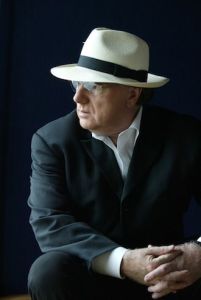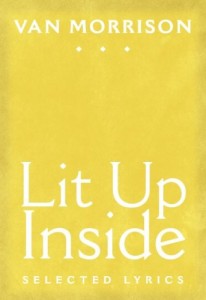Today April 30, marks the end of National Poetry Month and Jazz Appreciation Month. The bookend to my April 1 post on musician, poet, and literary artist Gil Scott-Heron is in tribute to Tongo Eisen-Martin, San Francisco’s newly appointed poet laureate, and a multidisciplinary artist in his own right. Eisen-Martin’s inaugural address and the reading he curated for the occasion was live-streamed on April 22 by the San Francisco Public Library in cooperation with local literary institutions, City Lights Books and Litquake. You can watch the entire 90 minute program here:
Please be patient as I am only just now realizing the how and why of Eisen-Martin’s standing as a natural torch-bearer for a modern style of poetry the likes of which Scott-Heron forged and the performing hip hop poets of the ’90s brought back into vogue: Both Eisen-Martin, like Scott-Heron, make substantive use of revolutionary rhetoric and their dead serious lived experience as Black men in America. While rooted in Black experience, the content expresses a profoundly deep love of and want for liberation of all oppressed peoples which leads with the dismantling of the structure of a capitalist society built on white supremacy, the one we historically and presently inhabit. That’s a lot for some folks, I know. There is also a spiritual core to the content that veers from the satirical to the surreal, all of it of a piece with its message.
Scott-Heron famously followed in the footsteps of his inspiration Langston Hughes, and Eisen-Martin has direct links to that lineage of jazz and blues poets: I’m not going to give away the hand, so if you’re interested you can dig around on your own and make the connections.
Though familiar as I am with Scott-Heron’s work, and in the several hours I’ve talked poetry and in the many more spent reading and listening to Eisen-Martin, Scott-Heron didn’t come up. Why? Well, Gil is the poet most often checked when people not-so-well-acquainted with poetry, Black poets, hip hop, Black music or Black Arts think of the first time they hear Eisen-Martin at work: I didn’t want to be that person, so I didn’t say so. Besides, that, I knew Eisen-Martin was more likely to name revolutionary, feminist, activist poet Audre Lorde, as someone he’d read widely and revered; that he’d studied with scholar Manning Marable, who’s written extensively on Malcolm X, and that he has appreciation for a spectrum of music, from Handy to Hendrix. But anyone who’s a regular at Eisen-Martin’s virtual readings will have noticed the image tacked to wall of his Zoom background: A picture of Scott-Heron, preaching to thousands.
For his inaugural event, friends, family, fans and San Francisco poet laureates emeritas Janice Mirikitani, devorah major and Kim Shuck were in attendance as Eisen-Martin passed the virtual mic to a cast of extraordinary poets, their work helping to give him his start and sustain him: They were, in no particular order here, his brother, Biko Eisen-Martin; early supporter, Marc Bamuthi Joseph; running mates during his New York years, Jive Poetic, Anthony Morales and Mahogany L. Browne, and the local network upon his Bay Area return: poet Joyce Lee, community organizer Uncle Damien and Alie Jones, co-founder of his newly established independent publishing house, Black Freighter Press. All contributed to making the poet and his inaugural event unprecedented in its power and presence. The humility of Eisen-Martin, and all of the poets, their collective ability to be attentive to each other’s work as they prepared to respond then perform their own considerable pieces without any interruption to their respective flows was part of the revelation. The intensely personal and political content was extraordinary, alive with excellence, contributing to the livestream’s immediacy, prescience and what will be its staying power: It was epic, in all respects. These poets of the Bay Area and beyond are the voices of the here and now, speaking to our precarious times, to neverending police violence and murder of Black people, and the everlasting oppression of indigenous people, women and the environment – matters that impact all people – delivered through Black (and Brown) lenses.
I hope readers of this space will set aside time to listen to the 90 necessary and critical minutes archived here, so that you may see and hear what we are doing here in San Francisco under Eisen-Martin’s steady guidance. “It’s the best decision this country ever made,” said Mahogany L. Browne of Mayor London Breed’s appointment of Eisen-Martin. “You’re a soul survivor – you are the best of us,” said brother Biko Eisen-Martin. ”Tongo might be the greatest poet of our generation but he’s a very, very good man,” said Marc Bamuthi Joseph in an introduction that also served as a lead up to a piece in which he conjured the life, slow death and words of Gil Scott-Heron.
And so the month ends where we began it: The revolution is in good hands.
Filed under: anti-capitalist, anti-war, Arts and Culture, Black Power,, Book news, Poetry, video, City Lights, San Francisco, Tongo Eisen-Martin

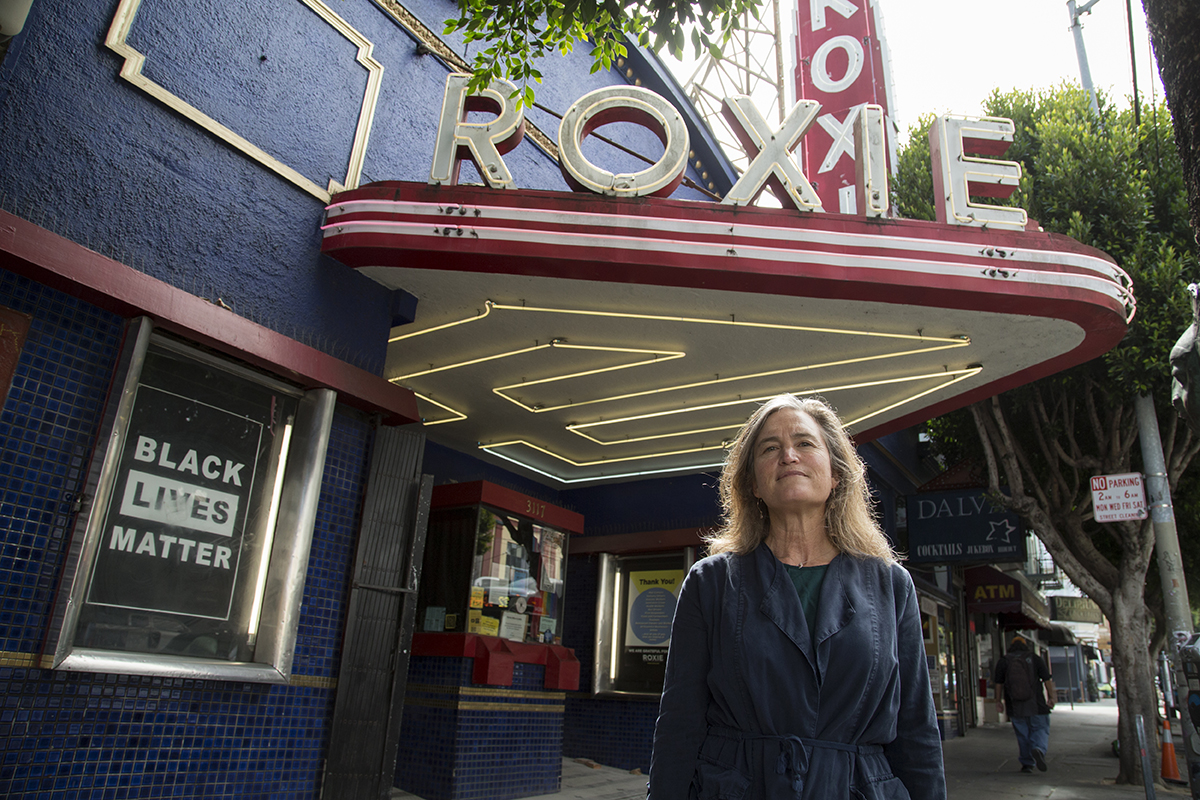
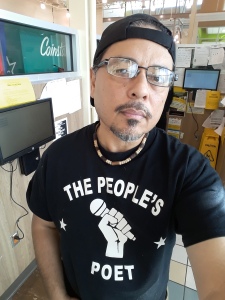 Francisco when I returned here, following a decade of living in Los Angeles. A housing advocate, particularly devoted to keeping seniors in their homes, and a cultural worker whose art is poetry, whether in the fight to preserve bookstores or entire neighborhoods, from the Fillmore to the Mission, Robles was a strong presence in the various communities he represented, from North Beach to City Hall and South of Market. Combining community and culture in the spirit and tradition of his uncle Al, one of our city’s beloved poet activists, Robles is a fighter for the city he’s allowed to hate — because he loves it — even though he’s left us for rural North Carolina…
Francisco when I returned here, following a decade of living in Los Angeles. A housing advocate, particularly devoted to keeping seniors in their homes, and a cultural worker whose art is poetry, whether in the fight to preserve bookstores or entire neighborhoods, from the Fillmore to the Mission, Robles was a strong presence in the various communities he represented, from North Beach to City Hall and South of Market. Combining community and culture in the spirit and tradition of his uncle Al, one of our city’s beloved poet activists, Robles is a fighter for the city he’s allowed to hate — because he loves it — even though he’s left us for rural North Carolina… This week San Francisco’s literary festival, Litquake, is celebrating 20 years of supporting writers, publishers, bookstores and the literary arts here in the Bay Area. The festival’s co-founders, Jack Boulware and Jane Ganahl are my kind of people: Journalists by trade, they dared to dream beyond the newsroom and share their love of the writing life with their immediate community. As their cohort of writers grew to include novelists, memoirists, biographers, sexperts, technologists and performance poets, the festival grew and grew, blossoming into its current incarnation as a 10-day event with international offshoots of the culminating night’s promenade, LIt Crawl.
This week San Francisco’s literary festival, Litquake, is celebrating 20 years of supporting writers, publishers, bookstores and the literary arts here in the Bay Area. The festival’s co-founders, Jack Boulware and Jane Ganahl are my kind of people: Journalists by trade, they dared to dream beyond the newsroom and share their love of the writing life with their immediate community. As their cohort of writers grew to include novelists, memoirists, biographers, sexperts, technologists and performance poets, the festival grew and grew, blossoming into its current incarnation as a 10-day event with international offshoots of the culminating night’s promenade, LIt Crawl.

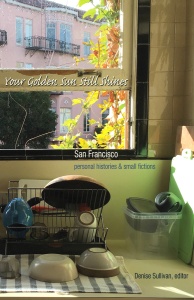 This collection of uniquely San Francisco stories from a wide range of voices wrests wisdom from chaos and channels boundless progressive energy into lyrical short stories and personal narratives, demonstrating that grace and resilience under pressure are as much a measure of San Francisco’s legacy as they are a determination of its future.
This collection of uniquely San Francisco stories from a wide range of voices wrests wisdom from chaos and channels boundless progressive energy into lyrical short stories and personal narratives, demonstrating that grace and resilience under pressure are as much a measure of San Francisco’s legacy as they are a determination of its future. editor of anthologies and contributor to countless publications and journals, Kim is part Cherokee, part Polish, and is a fifth generation San Franciscan currently living in the Castro District.
editor of anthologies and contributor to countless publications and journals, Kim is part Cherokee, part Polish, and is a fifth generation San Franciscan currently living in the Castro District.
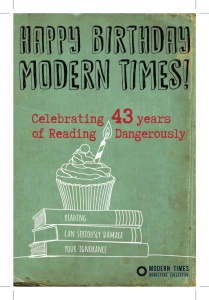 many attempts to bolster the business, and 44 years of service to the progressive community, the store has reached a crossroads. As its longest standing member and primary stakeholder, Ruth Mahaney, prepares for retirement, the store’s legacy as a left wing arts and cultural institution hangs in the balance. Unless, that is, a buyer with the right touch comes along…
many attempts to bolster the business, and 44 years of service to the progressive community, the store has reached a crossroads. As its longest standing member and primary stakeholder, Ruth Mahaney, prepares for retirement, the store’s legacy as a left wing arts and cultural institution hangs in the balance. Unless, that is, a buyer with the right touch comes along…